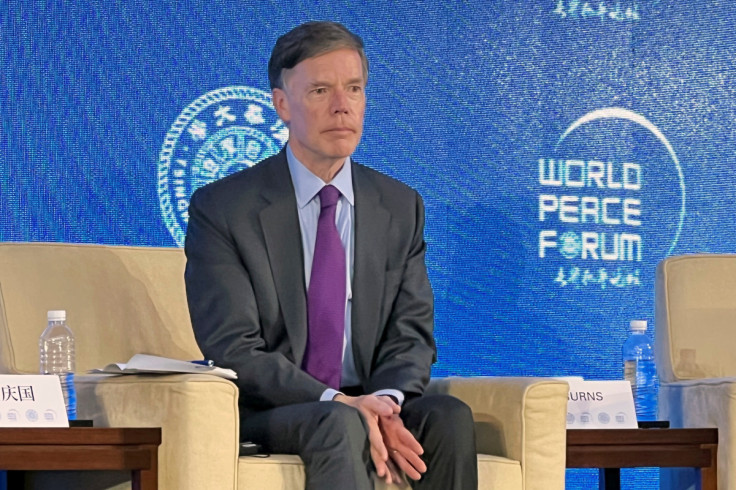China Must Be 'More Honest' On COVID Origins, Envoy Says

China must be more honest about the origins of the COVID-19 pandemic, the U.S. ambassador to China said on Monday, after reports that the U.S. Energy Department concluded the pandemic likely arose from a Chinese laboratory leak.
Nicholas Burns, speaking by video link at a U.S. Chamber of Commerce event, said it was necessary to push China to take a more active role in the World Health Organization (WHO) if the U.N. health agency was to be strengthened.
China also needed to "be more honest about what happened three years ago in Wuhan with the origin of the COVID-19 crisis," Burns said, referring to the central Chinese city where the first human cases were reported in December 2019.
The Wall Street Journal first reported on Sunday that the U.S. Energy Department had concluded the pandemic likely arose from a Chinese laboratory leak, an assessment Beijing denies.
The department made its judgment with "low confidence" in a classified intelligence report recently provided to the White House and key members of Congress, the Journal said, citing people who had read the intelligence report.
Four other U.S. agencies, along with a national intelligence panel, still judge that COVID-19 was likely the result of natural transmission, while two are undecided, the Journal reported.
The Energy Department did not respond to a request for comment.
President Joe Biden's national security adviser, Jake Sullivan, said on Sunday there were a "variety of views in the intelligence community" on the pandemic's origins.
"A number of them have said they just don't have enough information," Sullivan told CNN.
Asked to comment on the report, which was confirmed by other U.S. media, China's foreign ministry referred to a WHO-China report that pointed toward a natural origin for the pandemic, likely from bats, rather than a lab leak.
"Certain parties should stop rehashing the 'lab leak' narrative, stop smearing China and stop politicizing the origins-tracing issue," foreign ministry spokesperson Mao Ning said.
'A LITTLE BIT ORWELLIAN'
Burns told the Chamber event that it was a difficult moment for U.S.-China relations, with Beijing seeking to deflect blame after the U.S. military this month downed an alleged Chinese spy balloon that drifted across the continental United States.
"We're now in this surreal moment where the Chinese, who I think lost the debate over the balloon globally, lost influence and credibility around the world because of what they've done - they're now blaming this on us," Burns said.
"It's a little bit Orwellian. And it's a little bit frustrating, because I think everybody knows the truth here."
China reacted angrily when the U.S. military downed the balloon on Feb. 4, saying it was for monitoring weather conditions and had blown off course.
Burns added that it was the obligation of the United States to maintain its military strength "in and around Taiwan" to ensure the self-governed island claimed by Beijing has the ability to deter any kind of "offensive action" by China.
"It's also ... our responsibility to galvanize the rest of the world to make sure that the Chinese cannot get away with coercion or intimidation against Taiwan itself," he said.
© Copyright Thomson Reuters 2024. All rights reserved.





















